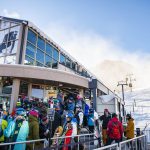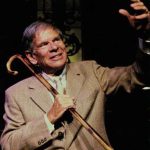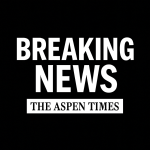Saddle Sore: Embrace the unknown trail

Tony Vagneur/Courtesy photo
There it was on a 3×5 card, tucked neatly under an envelope on the counter, in my hand, written in pencil. Just the simple phrase: “Not understanding where something is going and why it cannot go another way.” That’s all. What prompted me to save that short line? It certainly doesn’t fit our long-ago, tame-the-West philosophy of Manifest Destiny, but it could be used to emblazon the folly of such thinking today.
We lay in a soft bed of clover, the sweet smell of spring strong in the air, horses grazing nearby. Ah, how we got here, where we were going — those serious thoughts of our relationship were abandoned to the urgency of the moment. We knew where it was going; at this point, it couldn’t go another way. But wait: “That was great. I wish we could lie together like this forever, but we probably shouldn’t see each other anymore. This is getting too serious.”
“But that doesn’t make sense.”
Two perspectives, each true to the one holding it, neither understandable to the other. Not the outcome we were hoping for. Or maybe it was.
Just like doing our snow dances before the season, there’s a certain expectation that runs within each of us — a desire for the outcome to be predictable, that the ski lifts will open by Thanksgiving.
Perhaps, on another level, it is the longing that we long for, not the result. We live in a world of four seasons, relationships of every kind, wonderful restaurants, and a near-constant swirl of happenings. Horses, cattle, and other creatures live in the moment, we surmise, and perhaps they truly don’t look to the future. But we humans do. We look forward to the Friday night date, the weekend at the cabin, dinner at our favorite restaurant. And we reasonably believe things are headed that way and nothing will change it. Unless, of course, something does.
Living in this mountainous valley teaches us about the four seasons and their variability. Every year, every season is different in some way. And maybe that’s why we stick around. Out here, change has a way of sneaking up on us. A dry spring turns lush overnight, a good hay year collapses under a late-July hailstorm, and a fall we prayed would linger disappears behind an early snow. Nothing ever repeats itself exactly, no matter how many years we’ve watched the cycle. And maybe that steady unpredictability mirrors something in our own lives — a reminder that certainty is mostly a story we tell ourselves to feel settled.
Relationships don’t always go where we want them to or obey logic. Cattle sometimes don’t go where we’d like them to. It doesn’t rain when we wish it would or stop when we’re putting up hay. And lately, we know that snow doesn’t fall just because we need it.
On some level, it’s about control — this belief that activities and events should turn out the way we want. But we also know that just because we have a wish doesn’t mean it will be fulfilled. That is the gap, the unknown country between wishing and satisfaction. Life unfolds in whichever direction reality takes, and with experience, we begin to recognize that the gap is the most beautiful place of all — a place of sweet-tempered uncertainty and unknowable result. Isn’t that why life feels most alive not when we arrive, but when we’re hoping, waiting, imagining?
Maybe the trick isn’t to figure out why things can’t go another way. Maybe it’s simply to stay open to the way they do go. To accept that the future doesn’t need our permission to arrive. And to recognize, with a bit of grace and humor, that the choicest part of any story is rarely the ending — it’s the stretch of trail just before we know where it leads.
In the end, all we ever really hold is the wanting — bright as clover, sharp as spring snow. The rest drifts where it will. The cattle turn, the weather shifts, the lovers part, and still something in us leans forward, listening for the next footfall on the path. Perhaps the grace is in that leaning, that soft tilt toward what might be. Perhaps that is enough.
Tony Vagneur writes here on Saturdays and welcomes your comments at ajv@sopris.net.
Tony Vagneur writes here on Saturdays and welcomes your comments at ajv@sopris.net.
Pitkin County emergency dispatch director sees national recognition
A high performing 911 center and positive workplace culture don’t have to be mutually exclusive. That’s the philosophy proven by the director of Pitkin County Regional Emergency Dispatch Center, Brett Loeb, who was just recognized nationally as the 2025 Public Safety Answering Point Finest Director of the Year by NiCE Public Safety — an organization that recognizes emergency communications excellence.









